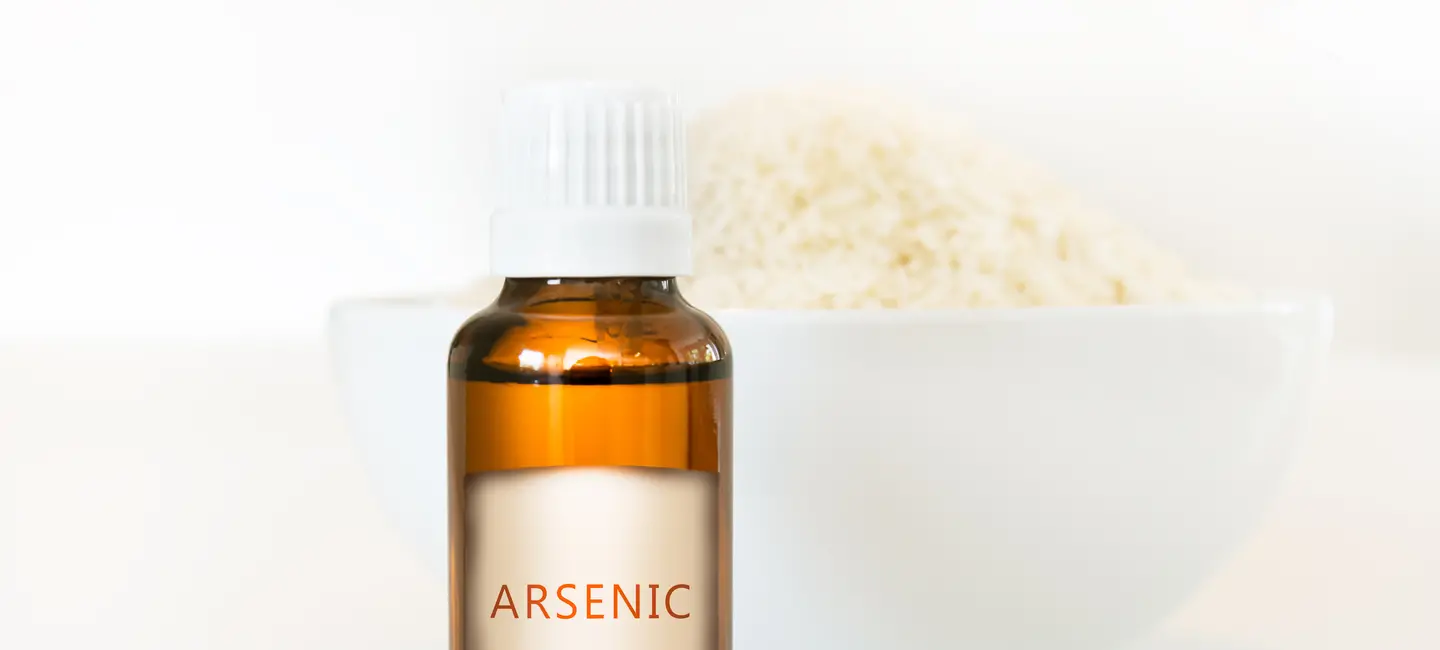
Arsenic is a trace element that naturally occurs in foods, such as rice. Organic arsenic is usually safe, but another form, inorganic arsenic, can be toxic.
The role of arsenic in the body isn't well understood. Most adults probably eat about 12-50 mcg of arsenic every day from a usual diet. Some experts have suggested that an average adult should have 12-25 mcg daily.
People use homeopathic preparations of arsenic for arsenic poisoning, COVID-19, seizures, and other conditions, but there is no good scientific evidence to support these uses. Homeopathic preparations are often so dilute that they contain little or no arsenic.
Inorganic arsenic compounds, which are different than organic arsenic, are considered poisonous. The US Environmental Protection Agency (EPA) classifies inorganic arsenic as a known cancer-causing agent. The maximum amount of arsenic allowed in drinking water is 10 mcg per liter.
Is It Effective?
NatMed Pro rates effectiveness based on scientific evidence according to the following scale: Effective, Likely Effective, Possibly Effective, Possibly Ineffective, Likely Ineffective, Ineffective, and Insufficient Evidence to Rate.
- Cancer of the white blood cells (leukemia). A specific, prescription-only form of arsenic (arsenic trioxide, Trisenox) is given by IV for the treatment of a specific cancer of the white blood cells known as acute promyelocytic leukemia. This product can only be given by a healthcare provider.
There is interest in using arsenic for a number of other purposes, but there isn't enough reliable information to say whether it might be helpful.
Is it Safe?
When taken by mouth: Organic arsenic is likely safe when eaten in normal food amounts. But inorganic arsenic, a different form of arsenic, is likely unsafe, especially when used long-term or in high doses. Taking 10 mcg/kg daily over time can cause arsenic poisoning. Higher doses can cause severe poisoning and death. Inorganic arsenic is classified as a cancer-causing agent in humans. Drinking water containing large amounts of inorganic arsenic has been linked to cancer, heart problems, and diabetes.
Special Precautions & Warnings:
Pregnancy and breast-feeding: Organic arsenic is likely safe when eaten in normal food amounts. But inorganic arsenic, a different form of arsenic, is likely unsafe when taken by mouth while pregnant or breast-feeding. Inorganic arsenic has been linked to miscarriages, stillbirths, and, in some cases, death of the newborn infant. Do not take arsenic supplements if you are pregnant or breast-feeding.
Children: Organic arsenic is likely safe when eaten by children in normal food amounts. But inorganic arsenic, a different form of arsenic, is likely unsafe when taken by mouth. Over time, drinking water containing large amounts of inorganic arsenic may lead to high blood pressure and problems with memory, attention, and intelligence in children.
Low levels of folic acid (folic acid deficiency): Folic acid deficiency changes the way the body processes arsenic. Having low levels of folic acid may increase arsenic levels in the body.
Heart problems: The prescription form of arsenic (arsenic trioxide, Trisenox) can affect heart rhythm in some patients. It is possible that non-prescription forms of arsenic might have similar effects.
Medications that can cause an irregular heartbeat (QT interval-prolonging drugs)
Interaction Rating=Major Do not take this combination.
Some forms of arsenic might affect electrical currents in the heart. This can increase the risk of having an irregular heartbeat. Some medications can have this same effect. Taking arsenic with these medications might increase the risk for a serious heart issue.
Herbs and supplements that might cause an irregular heartbeat (QT interval-prolonging products): Some forms of arsenic might affect electrical currents in the heart. This can increase the risk of having an irregular heartbeat. Taking arsenic with other supplements with similar effects might increase the risk for a serious heart issue. Examples of supplements with this effect include bitter orange, ephedra, grapefruit, iboga, and Panax ginseng.
There are no known interactions with foods.
Organic arsenic is naturally found in several foods including seafood, poultry, grains (especially rice), bread, cereal products, mushrooms, and dairy products.
As medicine, there isn't enough reliable information to know what an appropriate dose of non-prescription arsenic might be. It's sometimes used in homeopathy preparations. In these products, its often referred to as arsenicum album. Homeopathic preparations are often so dilute that they contain little or no arsenic.
Arsenate, Arsenic Pentoxide, Arsenic Trichloride, Arsenic Trioxide, Arsénico, Arsenicum Album, Arsenicum Iodatum, Arsenite, Arsénite, Arsénite de Sodium, As, Atomic Number 33, Fowler's Solution, Numéro Atomique 33, Pentoxyde d'Arsenic, Sodium Arsenite, Solution de Fowler, Trichlorure d'Arsenic.
Information on this website is for informational use only and is not intended to replace professional medical advice, diagnosis, or treatment. While evidence-based, it is not guaranteed to be error-free and is not intended to meet any particular user’s needs or requirements or to cover all possible uses, safety concerns, interactions, outcomes, or adverse effects. Always check with your doctor or other medical professional before making healthcare decisions (including taking any medication) and do not delay or disregard seeking medical advice or treatment based on any information displayed on this website.
© TRC Healthcare 2024. All rights reserved. Use and/or distribution is permitted only pursuant to a valid license or other permission from TRC Healthcare.
